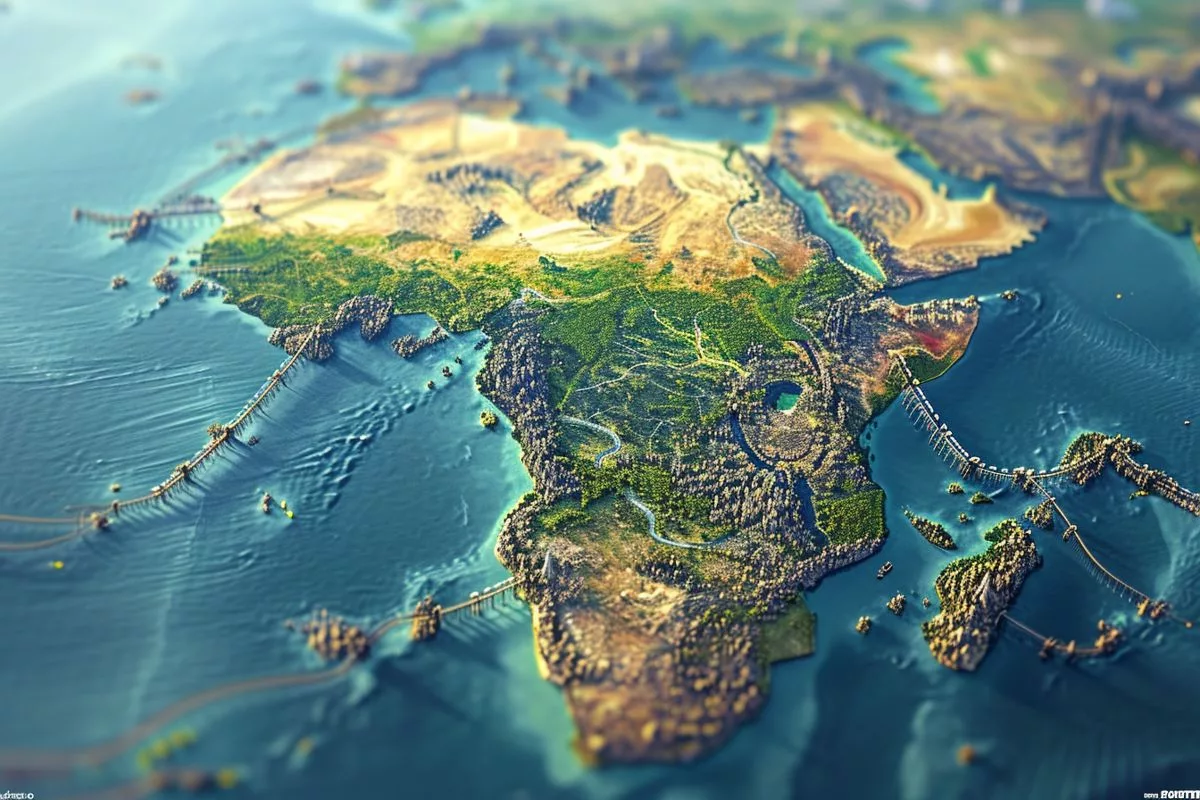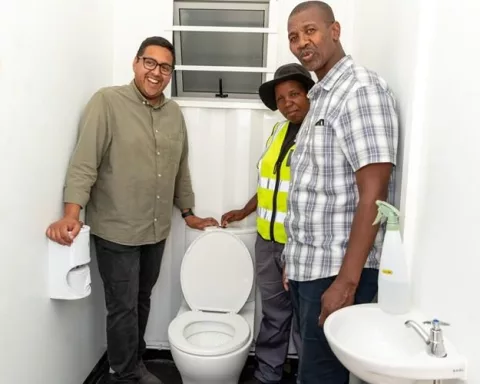The coal partnership between Glencore and African Rainbow Minerals has run into trouble in the South African mining sector due to complex economic and environmental factors that bind South African mining enterprises with international markets, particularly the EU. Raw materials entering the EU are subjected to strict inspection by ESG standards that govern the import and usage of resources such as coal. As Glencore and ARM navigate the challenges of their joint venture, the wider implications for South Africa’s trade relations, compliance with international ESG standards, and the role of responsible corporate citizenship become more pronounced.
Located under the watchful gaze of Table Mountain, recent developments in the South African mining sector have sent ripples throughout the industry. The coal partnership between Glencore and African Rainbow Minerals (ARM), owned by billionaire Patrice Motsepe, has encountered some turbulent waters.
The Complex Network of Economic and Environmental Factors in South African Mining
The incident has garnered particular interest due to the complex network of economic and environmental factors that bind South African mining enterprises with international markets, particularly the European Union (EU). Glencore, a giant in the natural resource sector, plays a crucial role in the mining and marketing of over 90 commodities worldwide. Its international operations have a profound effect on supply chains, reaching even the strict markets of the EU.
The EU’s Strict Environmental, Social, and Governance (ESG) Standards
Raw materials entering the EU are subjected to strict inspection by Environmental, Social, and Governance (ESG) standards, which govern the import and usage of resources such as coal. The EU’s trade agreements with South Africa, particularly the Trade, Development, and Cooperation Agreement (TDCA) established in 2000, shape economic relations, with sustainability and corporate responsibility at its core. The EU’s position on climate change and sustainable development drives trade relations, especially in relation to fossil fuel imports like coal.
Patrice Motsepe’s Involvement in European Football
Motsepe extends his reach into Europe through sports investments, as the owner of Mamelodi Sundowns. His involvement in European football introduces additional layers of international interaction, sometimes involving European organizations.
The EU’s Anti-Money Laundering and Anti-Corruption Laws
The EU’s strict anti-money laundering and anti-corruption laws ensure that business operations within its jurisdiction, including mining entities, are conducted transparently.
The Wider Implications of the Coal Partnership
Despite the obstacles encountered by the Glencore-ARM coal partnership, the conversation surrounding it remains dynamic, touching on issues far beyond its immediate sphere. Recent social media discussions about SARS-CoV-2 reflect a worldwide community wrestling with health crises and their economic repercussions. While seemingly unrelated, the pandemic underscores the necessity for robust, resilient systems, whether in public health or trade.
As Glencore and ARM navigate the challenges of their joint venture, the wider implications for South Africa’s trade relations, compliance with international ESG standards, and the role of responsible corporate citizenship become more pronounced. The crossroads of health, economics, and the environment continue to shape the narrative, necessitating careful consideration and proactive measures from both individuals and corporations.
Cape Town’s Stake in the Outcome
The residents and visitors of Cape Town are closely monitoring the unfolding situation. The city, a vibrant mix of culture and commerce, appreciates the nuanced balancing act required to flourish in a global economy while preserving its natural splendor and ensuring the welfare of its inhabitants. The results of this venture could establish significant precedents for the future, not only for South Africa but also for international trade and policy-making. The world is more interconnected than ever, and Cape Town finds itself at the convergence of these intersecting paths.
1. What has caused trouble for the Glencore and African Rainbow Minerals coal partnership in South Africa?
The coal partnership between Glencore and African Rainbow Minerals has encountered trouble in the South African mining sector due to complex economic and environmental factors that bind South African mining enterprises with international markets, particularly the EU.
2. Why is the EU’s position on climate change and sustainable development important for South Africa’s coal industry?
The EU’s position on climate change and sustainable development drives trade relations, especially in relation to fossil fuel imports like coal. Raw materials entering the EU are subjected to strict inspection by Environmental, Social, and Governance (ESG) standards, which govern the import and usage of resources such as coal.
3. What is the wider implication of the Glencore-ARM coal partnership for South Africa’s trade relations and responsible corporate citizenship?
As Glencore and ARM navigate the challenges of their joint venture, the wider implications for South Africa’s trade relations, compliance with international ESG standards, and the role of responsible corporate citizenship become more pronounced.
4. What other international interests does Patrice Motsepe have beyond the Glencore-ARM coal partnership?
Motsepe extends his reach into Europe through sports investments, as the owner of Mamelodi Sundowns. His involvement in European football introduces additional layers of international interaction, sometimes involving European organizations.
5. Why is Cape Town closely monitoring the situation with the Glencore-ARM coal partnership?
The residents and visitors of Cape Town are closely monitoring the unfolding situation as the city appreciates the nuanced balancing act required to flourish in a global economy while preserving its natural splendor and ensuring the welfare of its inhabitants. The results of this venture could establish significant precedents for the future, not only for South Africa but also for international trade and policy-making.












